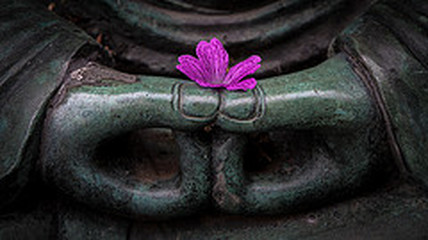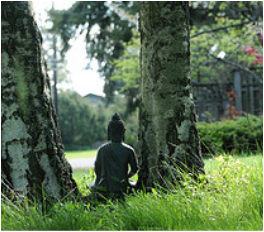What is mindfulness and how can it help reduce stress, anxiety and panic attacks?
|
A lot of us find it difficult to cope with the many challenges we face in our modern, hectic lives. We can easily race through life without pausing to notice what’s happening around us. We end up feeling stressed as we try to keep everything going, pulling our attention to a million places at once as we multi-task, trying to cram everything in. We worry that we’re not going to be able to fit in the shopping in between taking to kids to sports practice, having that long overdue catch up with friends for lunch, cleaning the house, and actually sticking to your promise you made to yourself to not have that gym membership go to waste. Oh, then there’s those emails sitting in my inbox that I am a bad friend if I don’t reply soon... It can feel never-ending, the things we need to take care of. No wonder we worry, feel anxious and wound up.
|
|
Will mindfulness really help me with my stress and anxiety?
The simple act of paying attention to ourselves and our lives creates big changes to how we feel, think, relate and how we experience the world. Mindfulness has been proven to help people lead better lives in all sorts of ways. It helps for people who:
|
|
How does mindfulness work?Mindfulness helps us to become more aware of our endless stream of thoughts and feelings and to notice when we are believing those thoughts and feelings in ways that aren’t helping.
This is like climbing a tree to help us see the lay of the land and where seems best to go when we’re lost. With this perspective, patterns emerge allowing us to see how we typically respond to certain situations, such as when someone asks up to do something, which we always say yes to, we might notice this pattern, and that you have some thoughts that say “No I really don’t want to do this”. Something that might have been invisible before we started practicing mindfulness. Mindfulness can be an enormously valuable tool in therapy, both in and out of sessions. In mindfulness therapy you are encouraged to practice being aware of the present moment, this moment, right now. By doing this in the therapy space we can apply the practice of mindfulness to whatever you are dealing with in the present moment. This in the moment process can be extraordinarily powerful and transformative. By developing our attention to the present moment we become more able to notice the signs of stress or anxiety sooner, which gives us more of a chance of being able to address the causes before things become overwhelming. Learning anything new is hard, especially if we’re doing it on our own, we might try for a few weeks and then just give up thinking it was too hard, or that we couldn’t get it right, as we not the type of person that is good at… |
Sometimes we can misunderstand what it is we’re meant to be doing and perhaps end up making ourselves feel worse. This is why it’s so important to have someone experienced alongside you in this process. Someone who explains mindfulness in plain language so that you really get it and can apply begin to apply it in your life. Like anything, it takes practice and we won’t be experts at it on our first attempt!
There are likely to be situations where it feels impossible to be mindful, like that colleague that you always feel self-conscious and stressed out around as you feel like they’re judging your every move or looking down on you. By having an experienced guide to discuss these inevitable challenges with, you will learn new ways to respond and deal with that stressful situation. I have spent the last 8 years or so practicing mindfulness everyday along with doing frequent week-long mindfulness retreats. Through this consistent practice I will have applied mindfulness to many of the situations that others are struggling with, so you can trust that I will understand and be able to help. |
What's the next step?
|
Mindfulness is helping people all over the world to feel more able to cope with the challenges of modern life, and to feel a greater sense of wellbeing. If you feel that stress or anxiety is getting to you, why not give it a go and try mindfulness for yourself. You could do this by making an appointment, or try out a guided mindfulness exercise by yourself right now.
The next step is to contact us to discuss any questions and to make a time in your busy life to discover that you don’t have to feel this way. In your first appointment we will talk about what’s going on in your life and in the present moment. Your therapist will share with you how mindfulness can be applied to help you in your life, and give you an initial taste of mindfulness so you can experience it for yourself. If you're not ready to make an appointment yet, you might like to read more about anxiety, and some of the other ways we treat it. Why not get started today and experience mindfulness, a scientifically proven technique to reduce stress and anxiety, and increase your wellbeing. We look forward to hearing from you. |
Specialty Areas |
Online BookingBook my first session.
If there are no bookable services showing via the online booking website, this means we currently have a waiting list for new clients. Please give us a call or email if you would like to add your name to it. |
Lucid Psychotherapy and Counselling, Christchurch provides affordable and effective individual psychotherapy, counselling, Intensive Short Term Dynamic Psychotherapy (ISTDP), ecotherapy, treatment for depression, stress, panic and anxiety disorders, and mindfulness mentoring, servicing the area of Ōtautahi Christchurch, Hokitika, Māwhera Greymouth, West Coast, Aotearoa New Zealand. We also offer online therapy sessions using video i.e., Zoom (telehealth). © 2015-2024 Lucid Psychotherapy & Counselling.



